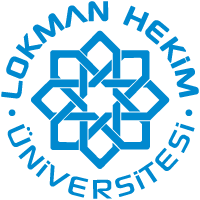| dc.contributor.author | Hürmüzlü, F. and Kılıç, V. | |
| dc.date.accessioned | 2020-10-26T11:37:40Z | |
| dc.date.available | 2020-10-26T11:37:40Z | |
| dc.date.issued | 2020 | |
| dc.identifier | 10.2494/photopolymer.33.27 | |
| dc.identifier.issn | 09149244 | |
| dc.identifier.uri | http://hdl.handle.net/20.500.12591/232 | |
| dc.description.abstract | The aim of this study was to investigate the effect of different light curing units and light modes on the amount of residual monomers eluted from different resin-based composites. Initially, a total of 96 composite samples (N=24/group) were prepared from 3 bulk-fill composites with different characteristics and a nanohybrid composite using a mold (diameter: 5 mm, height: 4 mm). Then, each group was divided into 4 subgroups (n=6). Polymerization of the resin composites was performed using a halogen light source (Hilux 250), a 2nd generation LED device (Elipar DeepCure –S) and a 3rd generation LED device (Valo, standard and ultra modes). Samples were stored in 75% ethanol solution and residual monomers eluted in the solution were analyzed with HPLC after 1 day and 1 month. Monomer concentrations corresponding to the peak areas in chromatograms were calculated in ppm to obtain data for statistical analysis. The study data were analyzed using One Way ANOVA (p=0.05) and post-hoc Tukey tests. The type of the light-curing unit significantly affected the amount of residual monomer released in all composite groups (p<0.05). Except the Fill-Up composite groups, the least monomer elution was detected in the groups cured with Elipar DeepCure-S. Residual monomer amounts detected after 30 days were significantly increased in comparison to those eluted after 1 day in all groups. In light of these findings, it was concluded that the light curing units might have an impact on the monomer elution from different composites. © 2020 SPST. | |
| dc.language.iso | English | |
| dc.publisher | Tokai University | |
| dc.source | Journal of Photopolymer Science and Technology | |
| dc.title | Analysis of monomer elution from bulk-fill and nanocomposites cured with different light curing units using high performance liquid chromatography | |














